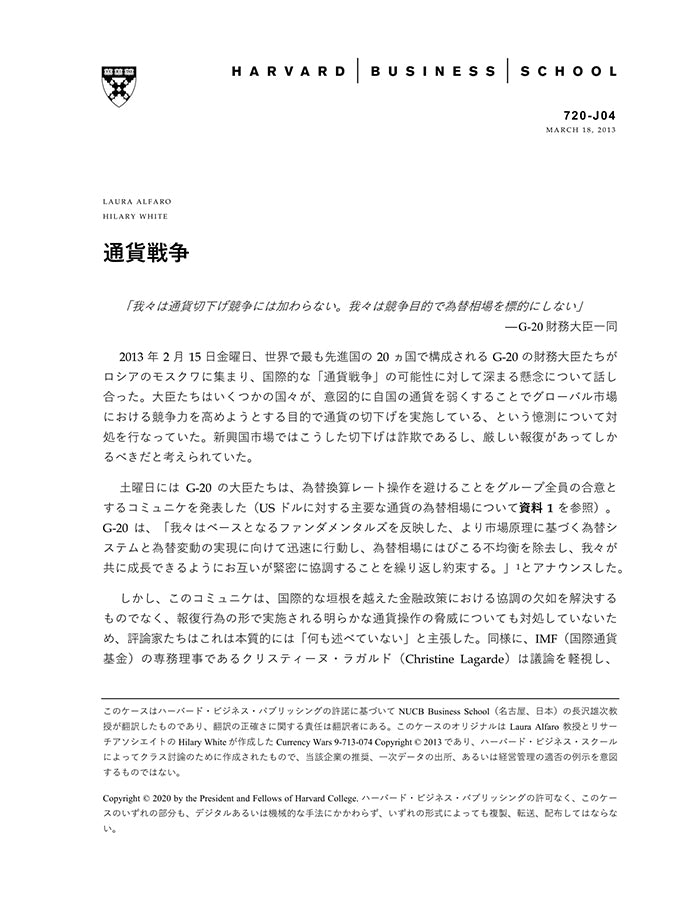通貨戦争
受取状況を読み込めませんでした
2013年2月、G20財務相はモスクワで会合を開き潜在的な国際通貨戦争に対する懸念の高まりについて話し合った。一部の国は、グローバル市場での競争力を向上させるために、意図的に通貨を切り下げていると推測された。新興市場は、米連邦準備制度理事会、欧州中央銀行、イングランド銀行などの主要中央銀行の拡大的な金融政策が、通貨高、輸出の減少、インフレの上昇などの重大で有害な波及効果を引き起こしていると主張し、発展途上国では逆に、そのような政策が国内および国際的な経済成長を復活させるために必要であると主張した。これらの政策により成長の復活はあるのか?拡大的な金融政策は、新興市場による「近隣窮乏化」行動と見なすことができるのか?発展途上国はどのように対応すべきか? In February 2013, the G-20 finance ministers met in Moscow, Russia to discuss the rising anxieties over a potential international currency war. It was speculated that certain countries were purposely devaluing their currencies in order to improve their competitiveness in global markets. Emerging markets contended that the expansionary monetary policies of the major central banks, such as the US Federal Reserve, European Central Bank, and the Bank of England, were causing significant and detrimental spillover effects, such as currency appreciation, declining exports, and rising inflation, in less developed economies. Conversely, the major central banks insisted that such policies were necessary for reviving economic growth both domestically and internationally. Would these policies successfully create a resurgence of growth? Can expansionary monetary policies be considered "beggar-thy-neighbor" actions by emerging markets? How should developing nations respond?
【書誌情報】
ページ数:10ページ
サイズ:A4
商品番号:HBSP-720J04
発行日:2013/3/18
登録日:2020/11/16


